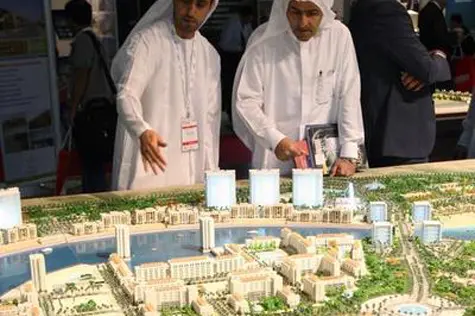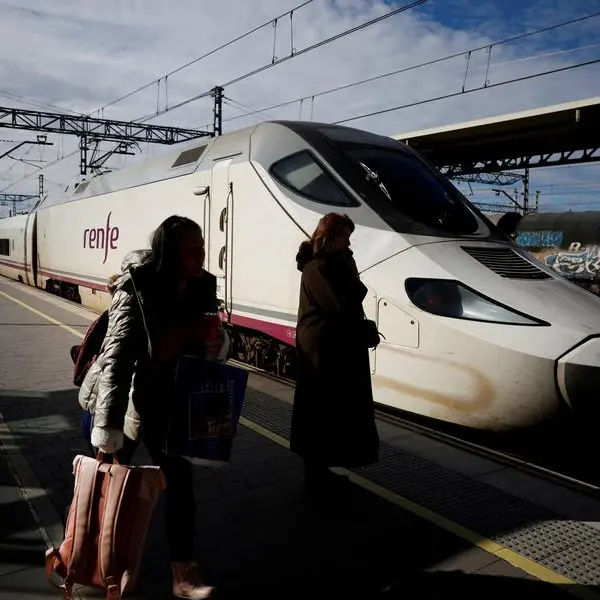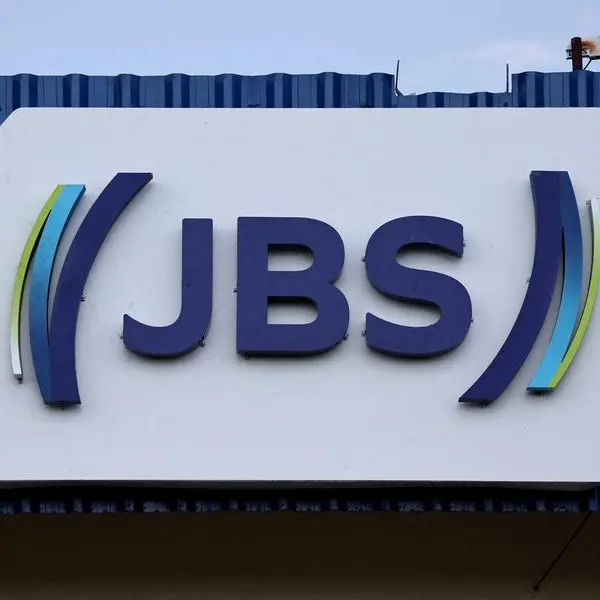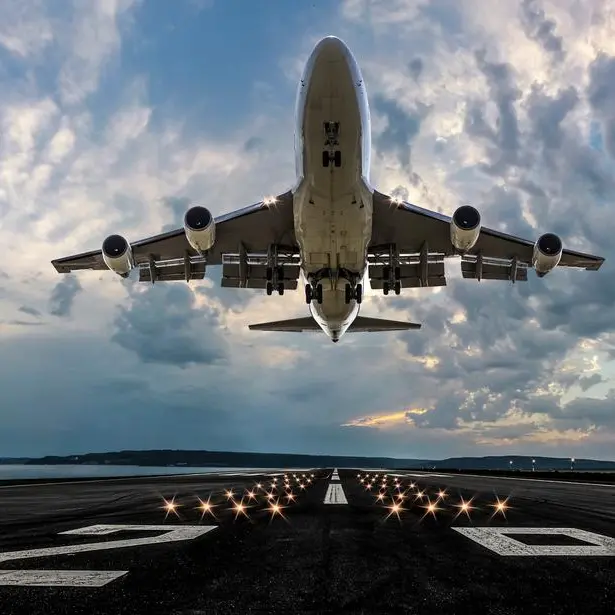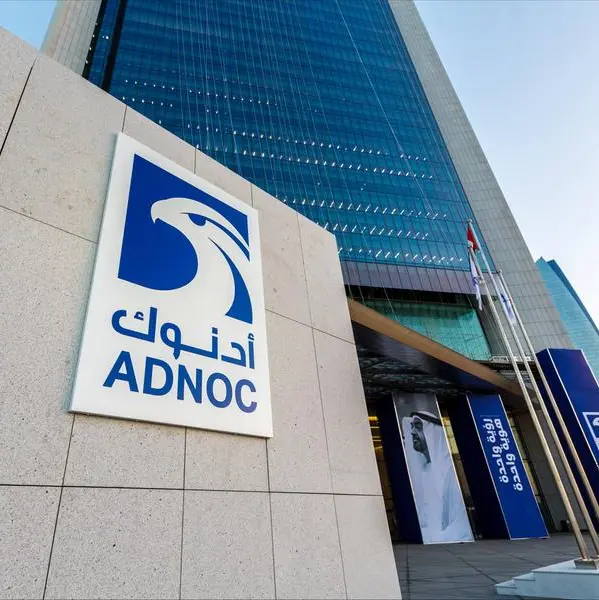PHOTO
12 May 2016
The Middle East is renowned for its ambitious and futuristic-looking plans, but dwindling government revenues in the region means funding from the private sector will be "critical" if large-scale projects are to go ahead, according to the results of a survey released on Tuesday.
The International Monetary Fund (IMF) has calculated that, if oil prices remain low, the fiscal deficits of the Gulf Cooperation Council (GCC) and Algeria will total almost $900 billion between 2016 and 2021, Reuters reported last month.
Combined with the fact the IMF has forecast that the non-oil sector in the GCC is projected to grow at an average rate of 3.25 percent a year over the next five years, compared to an average of 7.75 percent between 2006 and 2015, many regional governments are being forced to review their capital expenditure plans.
"The capital projects and infrastructure sector finds itself bearing the full impact of 'lower for longer' oil prices, and we think this will continue for another 12 months," Chris Scudamore, PwC capital projects services leader for the Middle East region, said in a statement.
The consultancy firm found 75 percent of the more than 130 owners and developers it surveyed across the region have already been impacted by funding constraints, while 65 percent forecast they will have less to spend on projects than last year.
"This is a significant contrast from our last survey - two years ago the industry grappled with capacity constraints driven by high volumes of spending and projects, now, it's the opposite," Scudamore added.
The PwC survey looked at a range of sectors, such as transport, urban development, social infrastructure, energy utilities and mining, and 90 percent of respondents said private sector funding of capital projects "would be of critical or growing importance over the next year".
However, private investors are already finding it difficult to get funding for capital projects, Humphry Hatton, chief executive officer, Deloitte Corporate Finance Ltd, told Zawya on the sidelines of the Arabian Hotel Investment Conference (AHIC) in Dubai last month.
Cautious banks
The drive into affordable housing, from the Dubai-based conglomerate's base in construction materials, has helped Danube increase turnover from
The geopolitical issues, such as conflicts in Syria, Iraq and Yemen, have seen investors "put off" investing in the Middle East and there has been a decrease in "people's risk appetite", Hatton said, adding that banks were increasingly reluctant to lend to those who were not familiar partners or established clients.
"[Banks] are just more cautious about lending to new schemes or to new names," Hatton said. "If it's a well-established developer [that] they've got a long relationship with and the scheme looks good, yes, but in terms of anything more risky, that's all drying up."
Consultancy firm KPMG last month released a report analysing the top 56 listed banks in the GCC. It found bank liquidity - the difference between deposits and loans - declined 6 percent across the region last year, with Oman and Bahrain the hardest hit.
With less government capital being available for banks to lend to investors, John Iossifidis, group head, corporate and investment banking, Mashreq Bank, warned that private investors were being "crowding out" as governments and the corporate sector seek to borrow to plug deficits.
"A quarter of the world is sitting with negative interest rates, so you've got interest rates here which are relatively more attractive," Iossifidis observed. "You've got banks sitting in Japan that are willing to lend to UAE [United Arab Emirates] banks at 40 basis points, whereas from a credit rating point of view or a local interest rate point of view there's an attractive opportunity for them."
On the plus side, respondents to the PwC survey said a mixture of government and private funding could result in more efficient project management, as 38 percent said projects would be more likely to come in on budget and 44 percent said they were more likely to be delivered on time.
© Zawya 2016
The Middle East is renowned for its ambitious and futuristic-looking plans, but dwindling government revenues in the region means funding from the private sector will be "critical" if large-scale projects are to go ahead, according to the results of a survey released on Tuesday.
The International Monetary Fund (IMF) has calculated that, if oil prices remain low, the fiscal deficits of the Gulf Cooperation Council (GCC) and Algeria will total almost $900 billion between 2016 and 2021, Reuters reported last month.
Combined with the fact the IMF has forecast that the non-oil sector in the GCC is projected to grow at an average rate of 3.25 percent a year over the next five years, compared to an average of 7.75 percent between 2006 and 2015, many regional governments are being forced to review their capital expenditure plans.
"The capital projects and infrastructure sector finds itself bearing the full impact of 'lower for longer' oil prices, and we think this will continue for another 12 months," Chris Scudamore, PwC capital projects services leader for the Middle East region, said in a statement.
The consultancy firm found 75 percent of the more than 130 owners and developers it surveyed across the region have already been impacted by funding constraints, while 65 percent forecast they will have less to spend on projects than last year.
"This is a significant contrast from our last survey - two years ago the industry grappled with capacity constraints driven by high volumes of spending and projects, now, it's the opposite," Scudamore added.
The PwC survey looked at a range of sectors, such as transport, urban development, social infrastructure, energy utilities and mining, and 90 percent of respondents said private sector funding of capital projects "would be of critical or growing importance over the next year".
However, private investors are already finding it difficult to get funding for capital projects, Humphry Hatton, chief executive officer, Deloitte Corporate Finance Ltd, told Zawya on the sidelines of the Arabian Hotel Investment Conference (AHIC) in Dubai last month.
Cautious banks
The drive into affordable housing, from the Dubai-based conglomerate's base in construction materials, has helped Danube increase turnover from
The geopolitical issues, such as conflicts in Syria, Iraq and Yemen, have seen investors "put off" investing in the Middle East and there has been a decrease in "people's risk appetite", Hatton said, adding that banks were increasingly reluctant to lend to those who were not familiar partners or established clients.
"[Banks] are just more cautious about lending to new schemes or to new names," Hatton said. "If it's a well-established developer [that] they've got a long relationship with and the scheme looks good, yes, but in terms of anything more risky, that's all drying up."
Consultancy firm KPMG last month released a report analysing the top 56 listed banks in the GCC. It found bank liquidity - the difference between deposits and loans - declined 6 percent across the region last year, with Oman and Bahrain the hardest hit.
With less government capital being available for banks to lend to investors, John Iossifidis, group head, corporate and investment banking, Mashreq Bank, warned that private investors were being "crowding out" as governments and the corporate sector seek to borrow to plug deficits.
"A quarter of the world is sitting with negative interest rates, so you've got interest rates here which are relatively more attractive," Iossifidis observed. "You've got banks sitting in Japan that are willing to lend to UAE [United Arab Emirates] banks at 40 basis points, whereas from a credit rating point of view or a local interest rate point of view there's an attractive opportunity for them."
On the plus side, respondents to the PwC survey said a mixture of government and private funding could result in more efficient project management, as 38 percent said projects would be more likely to come in on budget and 44 percent said they were more likely to be delivered on time.
© Zawya 2016
